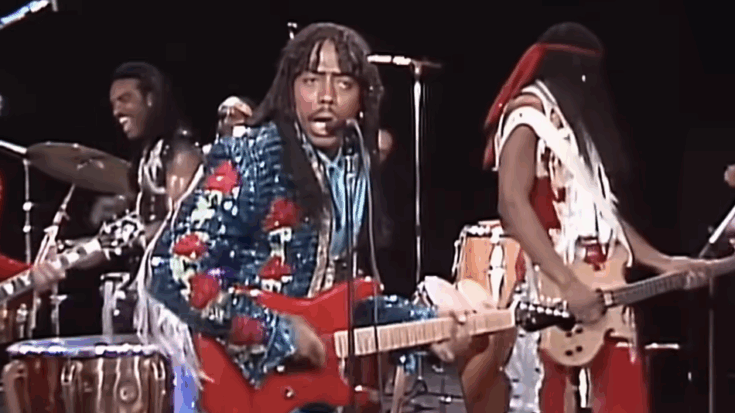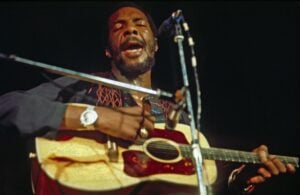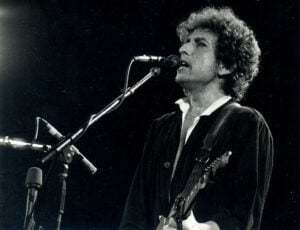10 Famous 1980s Songs That Became Disturbing

via WatchMojo.com / youtube
The 1980s gave us some of the most unforgettable music ever—songs that still get people dancing and singing along. Yet, for some hits, fame came with a darker edge. Behind the upbeat melodies and catchy hooks, several of these beloved tracks hide stories of tragedy, scandal, or sorrow.
John Lennon: “(Just Like) Starting Over”
John Lennon wrote “(Just Like) Starting Over” to celebrate love, renewal, and his creative partnership with Yoko Ono. Bright, dreamy, and full of promise, it symbolized a new beginning. Tragically, Lennon was shot and killed outside his New York home shortly after the song’s 1980 release, with Yoko by his side. What was meant to mark a new chapter instead became his farewell. Fans still hear both joy and sadness in its melody.
Phil Collins: “In the Air Tonight”
Phil Collins’ “In the Air Tonight” is one of pop’s most haunting tracks. Its echoing drums and cryptic lyrics led to rumors that it was inspired by a dark real-life event. Some claimed Collins witnessed a crime and wrote the song out of guilt. In truth, it expressed his anger and heartbreak following a painful divorce. The urban myth, however, gave the song an eerie legend of its own.
Soft Cell: “Tainted Love”
Originally sung by Gloria Jones in 1965, “Tainted Love” became a synth-pop smash when Soft Cell covered it in the early 1980s. Its moody sound and title came to reflect the fear and uncertainty of the early AIDS crisis. Years later, frontman Marc Almond called it “a soundtrack for a scary time.” The song endures as a symbol of pop’s ability to capture its era’s anxieties.
Bryan Adams: “Summer of ’69”
Bryan Adams’ “Summer of ’69” sounds like a nostalgic anthem about youth and garage bands. Adams once joked that the title was a sly double entendre, while his co-writer saw it as a sentimental journey back to 1969. Either way, its mix of love, longing, and rock ’n’ roll energy that has made it a timeless classic.
Duran Duran: “Hungry Like the Wolf”
“Hungry Like the Wolf” was a global hit for Duran Duran—slick, wild, and full of swagger. Over time, though, critics and cover artists began to note its predatory overtones, which feel jarring by modern standards. The band has largely ignored the controversy, continuing to embrace their hedonistic 1980s image. The song remains an emblem of that decade’s excess and excitement.
Michael Jackson: “Leave Me Alone”
Michael Jackson’s “Leave Me Alone” was his way of lashing out at relentless media scrutiny. Tabloids mocked everything from his appearance to his pets, and he turned that frustration into music. Sadly, as his career went on, the controversies grew darker—legal battles, health issues, and a spotlight that never dimmed. What began as a jab at gossip became a chilling reminder of fame’s toll.
The Police: “Every Breath You Take”
At first listen, “Every Breath You Take” sounds like a tender love song. But as Sting has explained, it’s actually about control and obsession. Its gentle melody conceals lyrics that read more like surveillance than romance. Ironically, the song is still played at weddings—even though its writer meant it as a warning about possessiveness and voyeurism.
Prince and The Revolution: “Let’s Go Crazy”
With its electrifying guitar riffs, Prince’s “Let’s Go Crazy” bursts with joy and spiritual energy. Yet its reference to “the elevator” symbolized evil and temptation. In a tragic twist, years later, Prince died in an elevator from an accidental overdose. The eerie connection only deepened the song’s meaning—a vibrant celebration of life and defiance against darkness.
Rick James: “Cold Blooded”
Known for his wild persona, Rick James drew “Cold Blooded” from a place of pain. The smooth, funky tune was inspired by his tumultuous relationship with actress Linda Blair. In his autobiography, James revealed that Blair ended a pregnancy without telling him, and he channeled that heartbreak into the song. Beneath its confident groove lies a story of betrayal and loss.
Gary Glitter: “What Your Mama Don’t See”
Gary Glitter’s 1980 track “What Your Mama Don’t See” once seemed like another provocative glam-rock hit. Decades later, Glitter’s criminal convictions for child abuse tainted his entire catalog, leading to his music being pulled from most public playlists. It stands as a grim example of how an artist’s actions can permanently stain their legacy.
These songs remind us that even the brightest pop anthems can conceal shadows. The 1980s may have sounded joyful, but behind the glitter and synthesizers often lay heartbreak, tragedy, and the darker realities of fame.






















